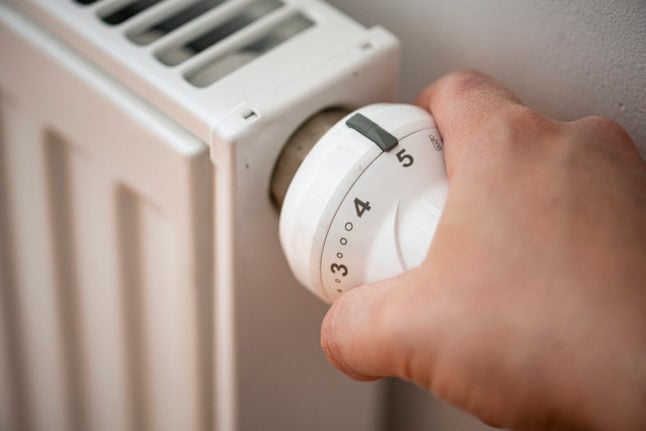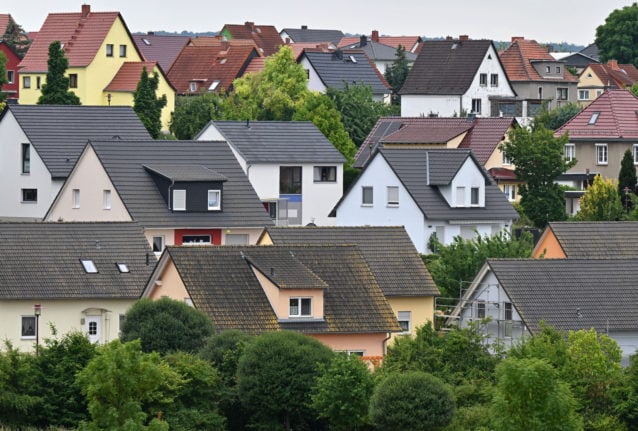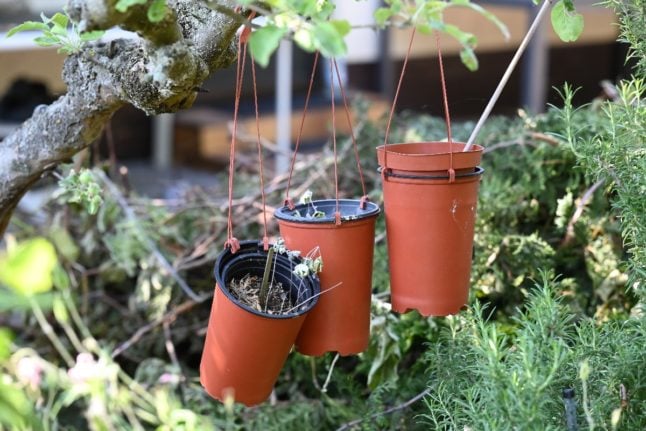Do property owners have to part with their gas and oil heating systems?
Not necessarily, but boilers which were installed before 1992 – or are more than 30 years old – can no longer be in operation according to the Building Energy Act (Gebäudeenergiegesetz, GEG) and – usually – have to be replaced with more efficient systems.
This applies to heating systems with a so-called constant-temperature boiler and a rated output of four to 400 kilowatts (kW). The temperature of these boilers is consistently high and can only be adjusted to a limited extent.
READ ALSO: Gas bills to double for millions of German households
This makes them more inefficient than, for example, condensing boilers, which consume less gas.
If you’re a tenant in Germany and have any concerns, you should contact your landlord to ask them about the boiler.
Are there exceptions?
Condensing boilers or low-temperature boilers are not affected.
There can also be exceptions for systems that are only for hot water, as well for some long-time home owners.
However, even if there is no obligation, it might still be worth looking into replacing an older system, or asking your landlord to.
Can new oil and gas heating systems still be installed?
In the coalition agreement, the government had stipulated that from 2025 onwards, all newly installed heating systems would have to be operated with a minimum share of 65 percent renewable energies. The coalition now want to bring this deadline forward to January 2024.
The concept paper presented in July is to be discussed by the end of the month. The installation of new pure oil or gas heating systems would then not be allowed from 2024 onwards, but this does not amount to a complete ban on these systems.
Heating systems that have already been installed can continue to be operated in 2024, unless they are older heating systems that have to be replaced. By 2045, however, all heating systems should be completely converted to renewables. About half of all homes in Germany are currently still heated with gas.

What grants are available for the replacement of old heating systems?
Until recently, the installation of new gas hybrid and gas condensing heating systems (renewable-ready heating systems) was subsidised by up to 40 percent. From August 15th, however, this will come to an end: subsidies for all gas-fired heating systems will be discontinued.
Who do I have to contact to apply for subsidy?
Homeowners can apply for the funds at the Federal Office of Economics and Export Control (BAFA). Applicants can check the processing status on the website. The government subsidies are grouped under Bundesförderung für effiziente Gebäude (Federal Subsidy for Efficient Buildings), or BEG for short.
READ ALSO: How much extra will German households pay under new gas surcharge?
What other regulations will come into force on August 15th?
The state will continue to provide financial support to owners who want to replace their old heating systems with more climate-friendly alternatives. However, the subsidy rates will drop significantly by between five and 10 percent from mid-August.
For solar collector systems, there will only be a 25 percent subsidy rate instead of the previous 30 percent.
Previously, the maximum subsidy rate for the installation of a heat pump was 50 percent, but from mid-August it will shrink to 40 percent with an upper limit of €60,000 per residential unit.
A new heating-exchange bonus of 10 percent has also been decided on. This is paid on top of the subsidy rate, and means owners can receive a kind of ‘special bonus’ for switching to resource-saving heating alternatives. A prerequisite for the bonus when replacing gas heating systems is that they must be more than 20 years old. According to the Economic Ministry, older systems are a particular focus of the measures because they consume a lot of energy.
READ ALSO: Should I install in an electric heater in Germany this winter?
Why have measures been adjusted?
The German government justifies the changes by saying that the dependence on Russian gas and oil needs to be reduced. Consuming less energy is the cheapest and most efficient contribution to more independence and better climate protection, the Economic Ministry says.
Incentives are essential, but they’ve been reduced for economic reasons in order to be able to make the subsidies available to more people, says the government.
“In future, the individual will get a little less in subsidies than before, but many people will be able to benefit from the subsidy programmes. This is appropriate in times of high energy costs,” said Economy and Climate Minister Robert Habeck (Greens) recently.
“The vast majority of people live in older houses. Renovating now, replacing windows, throwing out the gas heating – that helps to save costs.”




 Please whitelist us to continue reading.
Please whitelist us to continue reading.
Member comments